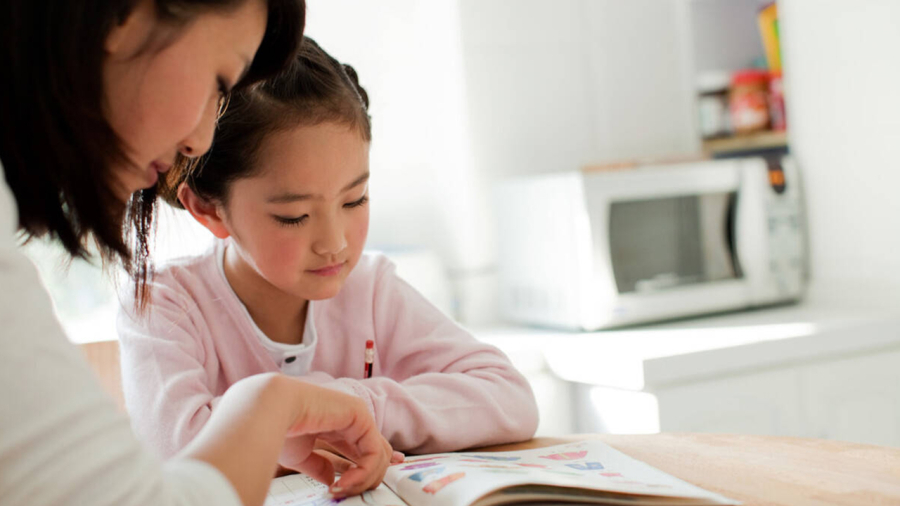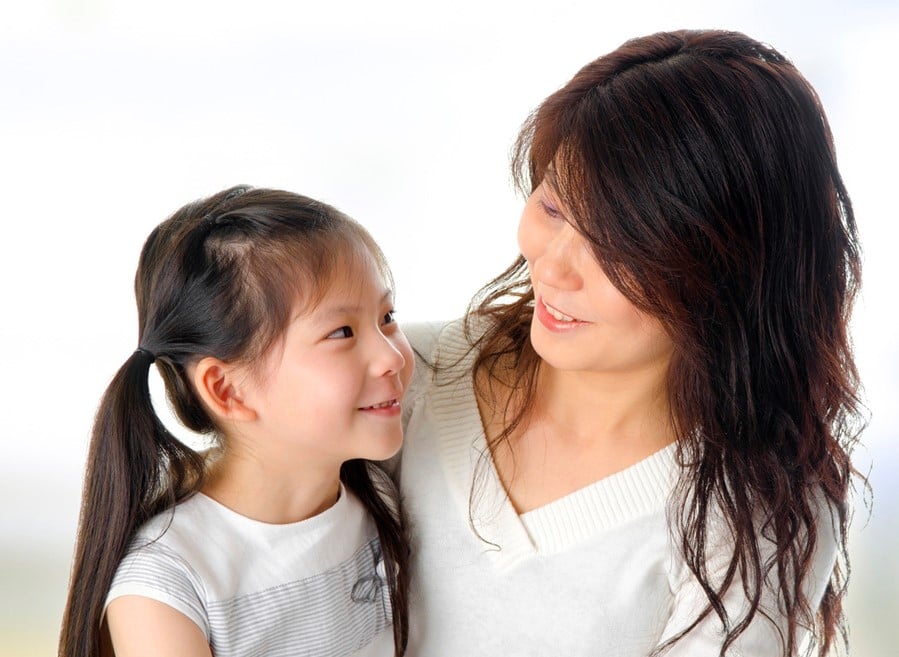A Happy Family
First of all, parents need to establish a good marital relationship in order to build a close parent-child relationship. The bond between husband and wife is the lifeblood of a family.
There is a saying: “The best love that a father gives to his child is a mother who takes good care of the child. The best love of a mother for her child is when the father knows how to respect their child”.

The gentleness and kindness of maternal love will naturally radiate if mothers are well taken care of by fathers. When a mother speaks highly of the greatness and sacrifices of the father, the father will naturally become a hero in the child’s heart, a bright role model for them to follow and learn from.
A harmonious family relationship will create a warm, cheerful, and happy atmosphere. People who grow up in this type of family always remain optimistic, confident, and believe in love, expressing their emotions naturally. Because they understand that love comes from genuine heartfelt feelings, without much thinking.
On the other hand, children who grow up in constant arguments between their parents will become insecure, worried, and self-conscious. Therefore, parents need to pay attention to maintaining a good relationship and never argue in front of their children.
A Family with an Atmosphere of Learning
Parents are the best teachers for their children. The best education for children is taught through words and actions. In order for children to love learning, parents must first create an atmosphere of learning in the family. When they have free time, parents can put down their mobile phones, turn off their computers and TVs, and read books, newspapers, learn new skills, or improve existing ones.
For children growing up in a family filled with such a learning atmosphere, studying will become a habit instead of a burdensome obligation.

A Disciplined Family
In a family, there must be love and rules. Love without principles will turn into indulgence.
Love and rules are not contradictory but rather unified. There is a saying: “Freedom with rules is called vitality; freedom without rules is called recklessness; lack of freedom is called discipline; lack of liveliness is called stupidity”.
Establishing family rules first comes from a sense of responsibility. Parents have this awareness to correct their children’s bad habits, while children have this awareness to make the family better through good habits. These rules are not only for children but also for every member of the family. Parents should be strict with themselves, set an example for their children, and establish good family rules from an early age. These rules will become habits for children to limit their shortcomings.
Parents keep the original version, and children keep the copy. If the copy has errors, the original version must be changed! Every action we take will leave a deep impression on our children. To nurture exceptional children, it is not enough to just work with them. Parents need to change their mindset, be a role model for their children, and be ready to grow with them. This is the medicine to educate and raise outstanding children.
A Family that Cherishes Books
According to many surveys, families where parents often sit down to read books or newspapers in their free time tend to have children who achieve better academic results. One particular family has children who love reading books. They not only read fairy tales and comic books but also read many academic books in various fields such as science, biology, literature, astronomy, etc.
The secret of this family is simple. When they have free time, parents gather in the living room to read books. Each person reads according to their interests and immerses themselves in their own world. This is a very effective way of educating children, where everything comes naturally. Because parents love reading books, they unintentionally pass on their interest and form good habits for their children. The children happily comply without resistance. For them, reading books becomes a natural activity, just like eating, sleeping, going to school, and playing.
On the other hand, many parents demand that their children read books but they themselves have no interest in books. They often entertain themselves with music, games, TV, etc. This affects their children’s attitude towards learning. Parents are the first and longest-lasting teachers in a child’s life. Every word and action leaves a deep impression on their children.
Learning Tips for Parents: 12 Japanese Techniques to Use with Your Children
Discover the 12 principles of teaching children in the traditional Japanese way that parents can learn with Dien May XANH! By instilling these principles when your children are young, you can ensure that they grow up to be obedient, smart and polite, the hallmarks of a successful education in Japan.





































